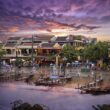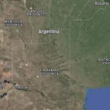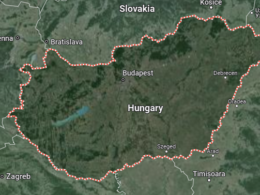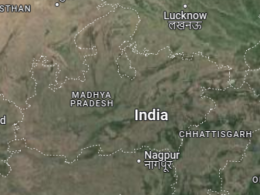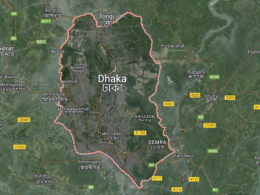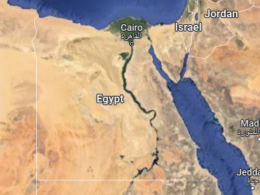Certainly! Here are 100 lesser-known facts about Karachi:
Karachi is the largest city in Pakistan and the capital of Sindh province.
The city was founded in 1729 by the Baloch chieftain, Mir Mahmood.
Karachi is one of the fastest-growing cities in the world.
It is the economic hub of Pakistan, hosting the country’s main stock exchange.
Karachi was once a small fishing village known as Kolachi.
The city has a deep natural harbor, making it a vital port for trade.
Karachi’s population exceeds 16 million, making it the most populous city in Pakistan.
The Quaid-e-Azam’s Mausoleum is a major landmark, dedicated to the founder of Pakistan, Muhammad Ali Jinnah.
Karachi’s Clifton Beach is a popular spot for locals and tourists.
The city is known for its diverse and vibrant food culture, including street food like bun kebab and Karachi biryani.
Karachi’s Frere Hall is an iconic colonial-era building now used for cultural events.
The Karachi Zoological Garden, established in 1878, is one of the oldest zoos in Pakistan.
The city is home to the Pakistan National Council of the Arts.
Karachi’s beaches, including Clifton and Manora, are popular recreational areas.
The city has several historic landmarks, including the Mohatta Palace, which now functions as a museum.
Karachi’s arts scene includes numerous galleries, like the Canvas Gallery and the Arts Council of Pakistan.
The Karachi Stock Exchange is one of the largest stock exchanges in the world by market capitalization.
The city’s education sector includes prestigious institutions like the University of Karachi and NED University.
Karachi’s Lyari neighborhood is known for its vibrant culture and history.
The city has a rich history of music, with genres ranging from traditional Sufi to modern pop.
Karachi’s Karachi University Library is one of the largest libraries in South Asia.
The Karachi Opera House, established in 1899, is a historic venue for performances.
The city’s tallest building is the Bahria Icon Tower.
Karachi is known for its extensive public transport network, including buses and rickshaws.
The Karachi Port is one of the busiest ports in the world by tonnage.
The city has a number of significant museums, including the National Museum of Pakistan.
Karachi’s Saddar area is known for its bustling markets and historical sites.
The city’s climate is characterized by very hot summers and mild winters.
Karachi’s Gulshan-e-Iqbal Park is a major recreational area and a popular picnic spot.
The city has a rich tradition of Urdu literature and poetry.
Karachi’s Bin Qasim area hosts the largest steel mill in Pakistan.
The city has a number of important educational institutions, including the Aga Khan University.
Karachi is a major center for Pakistan’s film and television industry.
The city’s population is ethnically diverse, with significant communities from Sindhi, Punjabi, Baloch, and Pashtun backgrounds.
Karachi’s historic Old City area is known for its narrow lanes and old buildings.
The city’s Pakistan Maritime Museum is located near Manora Island.
Karachi’s public parks include the Karachi Safari Park, one of the largest in the city.
The city’s street art scene is burgeoning, with murals and graffiti appearing throughout the city.
Karachi is known for its vibrant nightlife, with numerous cafes, restaurants, and clubs.
The city has a significant expatriate community, including people from the Middle East, Europe, and South Asia.
Karachi’s Karachi Metropolitan Corporation is responsible for municipal services and urban planning.
The city’s arts scene is supported by various cultural festivals, such as the Karachi Literature Festival.
Karachi’s Clifton area is known for its high-end shopping and dining.
The city is home to several large markets, including the Empress Market, established in 1889.
Karachi has a diverse culinary scene, with influences from Sindhi, Punjabi, Baloch, and international cuisines.
The city’s climate is tropical, with a humid monsoon season from June to September.
Karachi’s Dawood College of Engineering and Technology is one of the oldest engineering colleges in Pakistan.
The city has a number of historic mosques, including the Memon Masjid and the Shah Jahan Mosque.
Karachi’s public transport includes a network of buses, mini-buses, and rickshaws.
The city’s beach resorts are popular with both locals and tourists.
Karachi’s financial district, known as the “Golden Triangle,” includes key banking and corporate headquarters.
The city’s educational institutions attract students from all over Pakistan and abroad.
Karachi’s fishing industry is one of the largest in Pakistan.
The city’s architecture features a mix of colonial-era buildings and modern skyscrapers.
Karachi’s educational sector is supported by a number of public and private institutions.
The city has a significant number of cultural and historical monuments, including the Karachi Gate and the Mazar-e-Quaid.
Karachi’s Sufi shrines, like the shrine of Abdullah Shah Ghazi, are important cultural and spiritual sites.
The city has a number of shopping malls, including the Dolmen Mall and the Lucky One Mall.
Karachi is a major center for media and publishing in Pakistan.
The city’s public hospitals, like the Jinnah Postgraduate Medical Centre, are among the largest in the country.
Karachi’s Bagh-e-Jinnah is a historic park and a popular spot for picnics and outdoor activities.
The city’s real estate market is one of the fastest-growing in the region.
Karachi’s local cuisine includes a variety of seafood dishes, with fish and shrimp being particularly popular.
The city is home to several historic landmarks, including the Frere Hall and the Karachi Cantt.
Karachi’s commercial districts, like Saddar and Tariq Road, are major shopping hubs.
The city’s cultural festivals include the Karachi International Book Fair and the Karachi Film Festival.
Karachi’s public beaches are popular for picnics, swimming, and fishing.
The city has several major educational institutions, including the Institute of Business Administration (IBA).
Karachi’s local cuisine is famous for its spicy and flavorful dishes.
The city has a number of historical buildings, including the Karachi Port Trust Building and the Mohatta Palace.
Karachi’s public parks and gardens, like the Bagh-e-Iqbal, are popular spots for relaxation and recreation.
The city’s transport infrastructure includes a network of roads, bridges, and tunnels.
Karachi is known for its vibrant street markets, including the Bolton Market and the Zainab Market.
The city has a number of modern shopping centers, such as the Dolmen Mall Clifton and the Ocean Mall.
Karachi’s climate is influenced by its proximity to the Arabian Sea.
The city’s public services include water supply, sanitation, and waste management.
Karachi’s educational institutions offer a range of courses in arts, sciences, and engineering.
The city has a diverse population, with people from various ethnic and religious backgrounds.
Karachi’s cultural festivals celebrate music, literature, and art.
The city’s financial sector includes banks, insurance companies, and investment firms.
Karachi’s public transport system is expanding with new bus and metro services.
The city’s commercial areas are bustling with shops, restaurants, and markets.
Karachi’s educational institutions are known for their research and academic excellence.
The city has a rich tradition of literature and poetry, with many writers and poets originating from Karachi.
Karachi’s beaches are popular for their scenic beauty and recreational activities.
The city’s historic monuments include the Karachi Lighthouse and the St. Patrick’s Cathedral.
Karachi’s public hospitals and healthcare facilities are among the best in Pakistan.
The city’s local markets offer a wide variety of goods, from clothing to electronics.
Karachi’s cultural heritage is reflected in its art, music, and literature.
The city has a number of historic sites, including the Karachi War Cemetery and the Clifton Light House.
Karachi’s transport infrastructure is being modernized with new projects and developments.
The city’s public services include emergency response, fire safety, and law enforcement.
Karachi’s educational sector includes a range of schools, colleges, and universities.
The city’s cultural scene is supported by various art galleries and museums.
Karachi’s public parks and recreational areas are popular for outdoor activities.
The city’s local cuisine is known for its rich flavors and spices.
Karachi’s commercial districts are hubs for business and trade.
The city’s real estate market includes residential, commercial, and industrial properties.
Karachi’s public transport network is expanding with new routes and services.
The city’s cultural festivals and events celebrate its diverse heritage and vibrant community.
**Please note that this post may contain affiliate links. When booking through one of our links, we earn a small kickback at no extra cost to you and it’s a big help to keep the site up and running.

